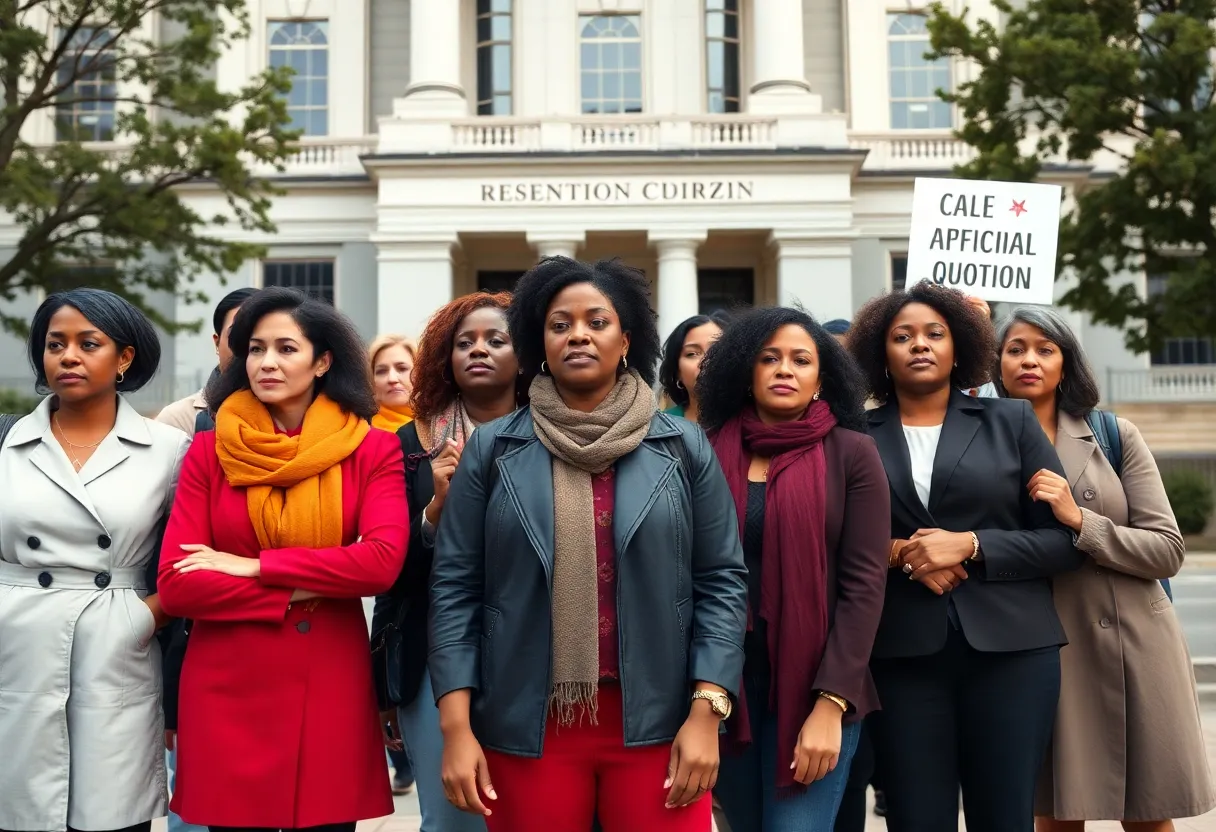News Summary
Two women from South Carolina, Sandy Chiong and Michelle Mitchum, have filed a federal lawsuit against Governor Henry McMaster, challenging a racial quota system that they argue is discriminatory. Their lawsuit claims that the South Carolina Commission of Minority Affairs currently requires an African-American majority, which has hindered their ability to serve despite their qualifications. This legal action seeks to eliminate the racial mandate and could set a significant precedent in the ongoing discussion about race and representation.
South Carolina Women Challenge Racial Quota in Minority Affairs Commission
In a bold move stirring up discussions about race and representation, two women from South Carolina have decided to take a stand against what they believe is a flawed racial quota system. Sandy Chiong from Garden City Beach and Michelle Mitchum from Orangeburg have filed a federal lawsuit against Governor Henry McMaster, raising eyebrows and questions regarding the commission dedicated to minority affairs in the state.
Background of the Dispute
The lawsuit, which was filed in December 2024, claims that the composition of the South Carolina Commission of Minority Affairs is discriminatory, citing that there are requirements for an African-American majority on the commission. Both plaintiffs have expressed their desire to serve on this important commission, which aims to promote advantages for minority communities throughout South Carolina. Despite their qualifications, they argue that their race has unjustly barred them from serving.
Who Are the Plaintiffs?
Sandy Chiong is the daughter of Cuban immigrants and has a rich heritage with mixed roots that include Chinese, Cuban, and Spanish ancestry. Living in the 7th congressional district, she has found herself in a peculiar situation as there is currently an expired seat on the commission—one that she believes she should be able to fill. Meanwhile, Michelle Mitchum, a prominent figure as the chief of the Pine Hill Indian Tribe, has had previous experience on the commission’s Native American advisory committee and claims she was told that a recent open seat would be filled by a member of “the Asian community,” further exemplifying the perceived racial bias.
Concerns About the Current System
The duo is seeking more than just a seat; they are calling for the elimination of the racial mandate that they say inhibits equal consideration among candidates. Their attorney, Jeffrey Dunlaevy, alongside the Pacific Legal Foundation, argues that serving on the Commission for Minority Affairs should hinge on merit and qualifications, not race. The lawsuit also seeks a nominal fee of $1 and the recovery of attorney fees, signaling their intention to make a point rather than financial gain.
Criticism of Commission’s Effectiveness
Mitchum has been vocal about her disappointment with the current state of the commission. She expressed concern over its effectiveness and the ongoing vacancies, claiming that the racial quota hinders the commission’s capability to operate effectively. In 2018, the S.C. House Legislative Oversight Committee voiced its lack of confidence in the commission after an audit highlighted failures to fulfill its responsibilities. This ongoing challenge presents a troubling picture for a body created in 1993 to address critical issues facing African-American communities.
Broader Implications
Chiong’s and Mitchum’s case reflects a growing movement to challenge race or gender-based appointment systems across the United States. Many advocates are calling for positions within government to be open to all qualified citizens, regardless of their racial background. As societal discussions about representation and equality continue, this lawsuit could set a significant precedent not only in South Carolina but also nationally.
Final Thoughts
The racial quota system in the South Carolina Commission of Minority Affairs has come under scrutiny as this lawsuit highlights the broader implications of race-based policies. As public opinion continues to evolve, the outcome of this case may spark further discussions about how we define diversity and representation in government. With a commission that currently has three vacant seats and members whose terms have expired, the calls for change may echo across state lines, rethinking how we address minority representation in a rapidly changing world.
Deeper Dive: News & Info About This Topic
HERE Resources
Columbia’s Legal Battle Over Racial Quota Raises Questions on Race and Representation in America
Additional Resources
- South Carolina Daily Gazette
- Wikipedia: Race and ethnicity in the United States
- Post and Courier
- Google Search: South Carolina Commission of Minority Affairs
- JD Supra
- Google Scholar: Racial Quota Lawsuit
- Washington Post
- Encyclopedia Britannica: Affirmative Action
- Roll Call
- Google News: South Carolina lawsuit racial quota

Author: STAFF HERE Chapin
CHAPIN STAFF WRITER The CHAPIN STAFF WRITER represents the experienced team at HEREchapin.com, your go-to source for actionable local news and information in Chapin, Lexington County, and beyond. Specializing in "news you can use," we cover essential topics like product reviews for personal and business needs, local business directories, politics, real estate trends, neighborhood insights, and state news affecting the area—with deep expertise drawn from years of dedicated reporting and strong community input, including local press releases and business updates. We deliver top reporting on high-value events such as the Chapin Christmas Parade, Fourth of July Celebration, and the Chapin Fall Festival. Our coverage extends to key organizations like the Chapin Chamber of Commerce and the Lexington School District One, plus leading businesses in retail and recreation that power the local economy such as Lake Murray Tourism and the Chapin Visitor Information. As part of the broader HERE network, including HEREaiken.com, HEREbeaufort.com, HEREchapin.com, HEREcharleston.com, HEREclinton.com, HEREcolumbia.com, HEREgeorgetown.com, HEREgreenwood.com, HEREgreenville.com, HEREhiltonhead.com, HEREirmo.com, HEREmyrtlebeach.com, HEREnewberry.com, HERErockhill.com, HEREspartanburg.com, HEREaustin.com, HEREcollegestation.com, HEREdallas.com, HEREhouston.com, and HEREsanantonio.com, we provide comprehensive, credible insights into South Carolina's dynamic landscape.





